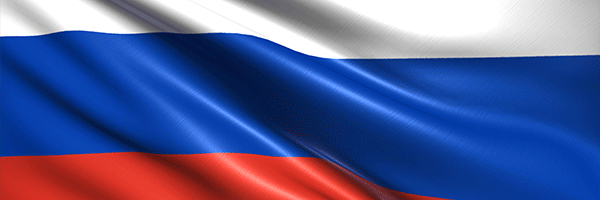Table of contents
April 2020 Update: The current compliance deadline for all medicines manufactured in Russia or imported into Russia is July 1, 2020. As of December 31, 2019, medicines that fall under the government’s HCN/7 Nosologies guidelines are expected to comply with the current serialization requirements, which comprise 4 elements: Product Code (GTIN), Serial Number, Crypto Key, and Crypto Code. Expiry Date and Batch Number are no longer required. See the latest Russia Regulatory Updates for news on Russia Track and Trace regulations.
The Russia draft law, which has been in the State Duma for most of 2017 and which sets the official legal basis for coding, serialization and compliance reporting, was amended and passed through final voting the week of December 18. The Federation Council passed the draft law on December 26, and it is expected to be prepared for signature by the President shortly. All experimental pilot work has been done under a different decree signed in 2016.
UPDATE: The draft law was signed by President Putin on December 28th and the final law published on December 29th.
Key Points from Final Law
The final law provides new information on timeframes and process, including:
- Full implementation date of Jan. 1, 2020, representing a one year extension from the original bill;
- The government has the power to establish intermediate deadlines for certain classes of drugs, and has stated an intention to do so;
- The government will call official hearings in July 2018 to review progress of preparations;
- The government will form a working group to monitor implementation.
Mikhail Murashko, who heads Roszdravnadzor, the government regulator function for healthcare and medical devices, has stated that he wants implementation of certain drug classes by the end of 2018, though a specific deadline has not yet been set. These drug classes include:
- 7 HCN/Nosologies (7 therapeutic conditions such as multiple sclerosis)
- VED medicines (certain medicines defined as “vital and essential” by the gov’t)
- Possibly medicines > 500 rubles in cost
According to the government, approximately 45 to 50 pharmaceutical companies produce medicines in HCN/VED classifications. If Roszdravnadzor does pursue intermediate deadlines, these companies will have serialization and compliance requirements by the end of 2018 and possibly sooner.
Traceability Compliance and Russia Infrastructure Readiness
Russia has created what is arguably the most complex centralized track and trace compliance regulation yet seen. The central system reporting schema, which documents the key traceability events and their data structures, and technical guidelines, which describes the reporting process to the government system, are still being finalized. Russia has not yet specified a final date when all documented compliance events will be coded and live, but we do know that there are 42 individual compliance events/reports/notifications in the current schema which capture information about medicines throughout the lifecycle of medicines from production through dispensation. Approximately 35 of these impact pharmaceutical companies / manufacturing authorization holders. We also know that slightly different events/reports are required depending on whether production and packaging occurs domestically versus medicines produced outside of Russia and imported in through customs. These compliance reports and related notifications are electronically signed as part of the secure reporting process to the government system, a system which is still being completed.
How TraceLink Can Help
TraceLink has been working closely with over two dozen customers who produce medicines for Russia, many of whom are part of the government’s 2017 experimental testing pilot, and with Russia government program leads, to provide a solution for the 2018 deadline, and will also continue to monitor and share regulatory updates. For more information on meeting the Russia requirements, contact us.



